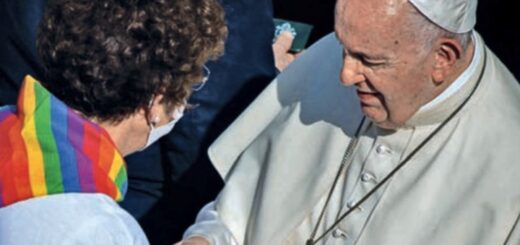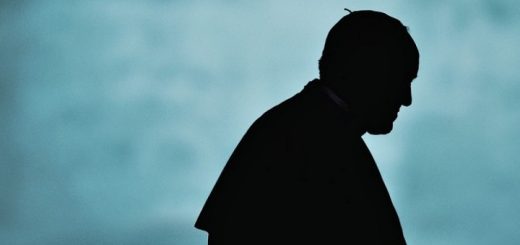The dark face of the revolution. The homosexuality in Cuba at the time of Fidel Castro
Article by Luis M. Alvarez published on the Universogay.com website (Spain) on December 6, 2016, free translation by Dino
Whether they are democracies, monarchies or republics, whether they began with a revolution, with a military coup or even that they have come to power through the polls, all political regimes have their lights and shadows. After the nine days of mourning, now that the remains of Fidel Castro lie in the cemetery of Santa Ifigenia of Santiago de Cuba, it is time to make balances and to give an account of the evolution on the Caribbean island of the rights of homosexual, bisexual and transsexual people over the course of 57 years, since Castro takes power until his death.
From freedom to slavery
Fidel and Raul Castro, Che Guevara, Camilo Cienfuegos, Juan Almeida and Huber Matos were the main leaders who gave impulse to the left Cuban revolutionary movement which caused, on January 1, 1959, the fall of the Fulgencio Batista dictator who arrived in power in the power in 1933 by means of a coup d'état known as the revolt of the sergeants who ended the government, equally authoritarian, of Gerardo Machado. Thus began a revolution which, at the beginning, enjoyed the approval of most of the Cuban society and a large sector of the international community. But his agenda did not necessarily include a sexual revolution and once the political purge was over, the homosexual one began.
Castro considered homosexual people as agents of imperialism, heirs of the vices of the pre -revolutionary Cuba (in which homosexuality was already subject to sanctions). An idea born due to the paranoia arose after the invasion of the bay of the pigs, but also strengthened by the hostility that the Soviet Union, the new ally of the revolution, had towards homosexual people (who still persists in our day) . In the same way, gay bars and cruising areas are transformed, in the eyes of the Cuban revolution, into counter -revolutionary centers that must be uprooted.
"We have never believed that a homosexual can personify the conditions and behavior requirements that allow us to consider it a real revolutionary. A deviation of this clash nature with the concept that we have of what must be a communist militant"He declared the Cuban leader, thus starting the brutal persecution of homosexuals by his government.
If we think of what happened in those years also in other countries, such as Spain in which the law on vagabonds and thieves was applied, the situation was no different.
In Cuba, when they did not put LGBT people in prison, they bordered them in detention camps, called military units of production aid (UMAP) in Cuba, where they officially finished those who refuse to do military service or had been refused by the forces Revolutionary armies of Cuba, and they were a place where all suspicious people were sent, in particular homosexuals, hippies in general, and all those who did not conform to the revolutionary ideal. It was stated that there would receive 7 pesos for the work done and they would have had free Sundays, which does not seem to coincide with what was told in the lead Impropia (1976), an instructive documentary of Néstor Almendros and Orlando Jiménez Leal.
A sudden opening before the arrival of the darkness
It continues to amaze us that by watching this documentary we can perceive how similar the policies against homosexuality are in Cuba and Spain, since both countries, which have very different ideologies, during the seventies committed themselves to treating and treating the homosexuality with various techniques and therapies. The National Working Group on Sexual Education, founded in Cuba in 1972, developed and coordinated activities on sexual education, but from 1977 it oversaw the training of therapists and sexual educators and paid particular attention to transsexual people and the care of those who they were referred to as “sexual dysfunctions”. Put like that, it seems like an interesting masterclass, but in reality it was a way of doing therapy (for the treatment of homosexuality), as Reinaldo Arenas documents in detail in his autobiography, 'Before it's night', later brought to the big screen by Julian Schnabel in the award-winning Before it's night (2000, EE.UU.).
In 1975, however, an unexpected turning point took place, when the Supreme Popular Court canceled the laws that order to exclude homosexuals from the uses connected with education and culture. With the election of Armando Hart as Minister of Culture, from the year after a period of relative opening to Cuba begins through more liberal cultural policies, which culminate with the legalization of the relationships between people of the Sex Stasso in 1979, provided that they take place in private And between people over 16 years of age, categorically excluding prostitution.
Regardless of the fact that the company was more or less tolerant in this regard, or that the government did not want to approve the law that put an end to the persecution of homosexuals, it is certain that homosexuality ceased to be illegal in Spain only a year after the Entry into force of the new Spanish Constitution of 1978, meeting instead to [Cuba] a certain resistance, as is evident from the words of the "sanctified" Enrique Tierno Galván when he says it is not "shared granting freedom, nor propaganda to homosexuality. I believe it is necessary to put limits to this type of deviations, since instinct is so clearly defined in the western world. The freedom of instincts is a respectable freedom, provided that in no case does not transgress the coexistence models accepted by the majority as positive moral models".
Leaving the closet
It can be discussed whether it was an exercise in international cosmetics, after Castro's invitation to abandon the island (to homosexuals and other people not liked by the regime) during theMariel's exodus, in 1980, in which he saw a purge by the Castro regime. Although Castro has always denied that anyone had been forced to abandon the island (as did Pinochet who was on the verge of death, while he was about to be judged for war crimes, but who miraculously recovered as soon as they let him return to his country). But it is certain that the eighties saw the establishment in Cuba of a gradual opening towards homosexual themes with the publication, in 1981, of 'In defense of love' by Dr. Sigfried Schnabl, where it was stated that homosexuality is not a disease, which led the Ministry of Culture to reconsider its position towards sanctions against homosexual people.
Five more years will have to pass before the National Commission on Sexual Education publicly admits that homosexuality is nothing more than a sexual orientation, therefore that it must be considered natural, which led the government to abolish the Law in 1988of public display', in force since 1938. But it must not be surprised that it coincides with the beginning of some health investigations in Cuba in which those citizens of the HIV were sought, a way that was used to select people to make guroles on which to test the validity of the experimental treatments to find a cure for AIDS, in the immense worry of Fidel Castro to stand out from the United States.
Heir of the spirit of the national group of sexual education work, although for opposite purposes, in 1989 the National Center for Sexual Education was founded, an organism that depends on the Public Health Ministry of Cuba and which is focused on the education and research on the sexuality of people. More known with the abbreviation Cenesex, he is currently directed by the sexologist, activist and deputy Mariela Castro, daughter of Raúl Castro, who has unusually transformed into a protector of the rights of LGBT people on the Cuban island.
For better or for worse, spontaneous or forced, in 1993 the first vision of the multiple film 'Strawberry and chocolate'(Juan Carlos Tabío & Tomás Gutiérrez Alea, 1993, Cuba), symbolizes the opening of the Cuban regime towards LGBT people and the desire to regularize relationships with people of different sexual orientation.
Driving behind the fact that homosexual people were admitted to the army, Fidel Castro came to say, in a 1993 interview, that he never supported the policies against homosexuals. One of those statements that would have waited at least 20 years before being portrayed. In fact, his words did not seem to fall into the hostility of the police towards the homosexual community, despite having also precise instructions not to persecute them.
Perhaps it was a strategy to align with the international attitude regarding human rights, in general, and in the field of LGBT rights in particular, as shown by the closure, in 1997, of the Cuban association of Gayse lesbians, founded only three years earlier. Whether it is an era in which a male -sized and patriarchal context continues to be very present, it is perfectly clear in films such as Girlfriend dress (Marilyn Solaya, 2014, Cuba) or The king of Havana (Agustí Villaronga, 2015, Spain & Dominican Republic).
The path to normality
“People are afraid to meet and organize themselves. It is mainly based on your experience of previous years, but you can think that this feeling in the future will disappear if the lesbians and gays will begin to take action to finally obtain the support of the government. (The National Sexual Education Center is offering this help)“, so stated Carlos Sánchez, representative of the International Association of Gays and Lesbians for the Latin American Region and the Caribbean, the new LGBT reality born in 2004, which according to his own research was no longer persecuted or punished in Cuba.
Thanks to the initiatives of CENEMEX, with the arrival of the 21st century, we can begin to talk in Cuba about a true regularization of relations between the government and the homosexual community, and transsexual people are beginning to organize themselves to achieve their goals. Although without a law that legitimately regulates it, since 2008 transsexual people have finally had the opportunity to access gender reassignment surgery for free, provided they satisfy some very specific conditions. A semi-contradiction is given by the fact that even today transsexual people continue to be unable to access higher education, cannot obtain employment and are forced to live on the margins of society.
The one we've all been waiting for
“If you have to take responsibility, I'll take mine. I don't want to blame others (…) Yes, there were moments of great injustice, a great injustice! Whoever committed it. If it was us, then it's our fault“, declared Fidel Castro in a 2010 interview, admitting that he had lied shamefully in the past, but these words of his serve to definitively end a persecution that lasted fifty years, despite [homosexuality] having been decriminalized thirty years earlier.
From this moment on we can speak of a real opening of the Communist Party of Cuba which, even if it fails to approve a bill presented in 2011 regarding civil unions between people of the same sex, in 2013 prohibits discrimination due to sexual orientation, still leaving the aspects concerning education, housing, access to public facilities unresolved and still neglecting the legal aspect of issues concerning gender identity.
Like many revolutions, in the end the sexual revolution in Cuba also had to take place within the structures of the State, because perhaps without the support of Mariela Castro and the activities developed thanks to CENESEX, which culminated in the opening of leisure venues intended for LGBT people and the creation of annual days against homophobia and transphobia, we could not yet speak of real normalization, which has not yet occurred in other Latin American countries. Currently, the greatest obstacle to the eradication of discrimination and the evolution of laws favorable to LGBT people paradoxically no longer lies in the Cuban government, but in the influence exercised by the Catholic Church, as happens in most of the world.
Original text: Homosexuality in Cuba in the times of Fidel Castro






